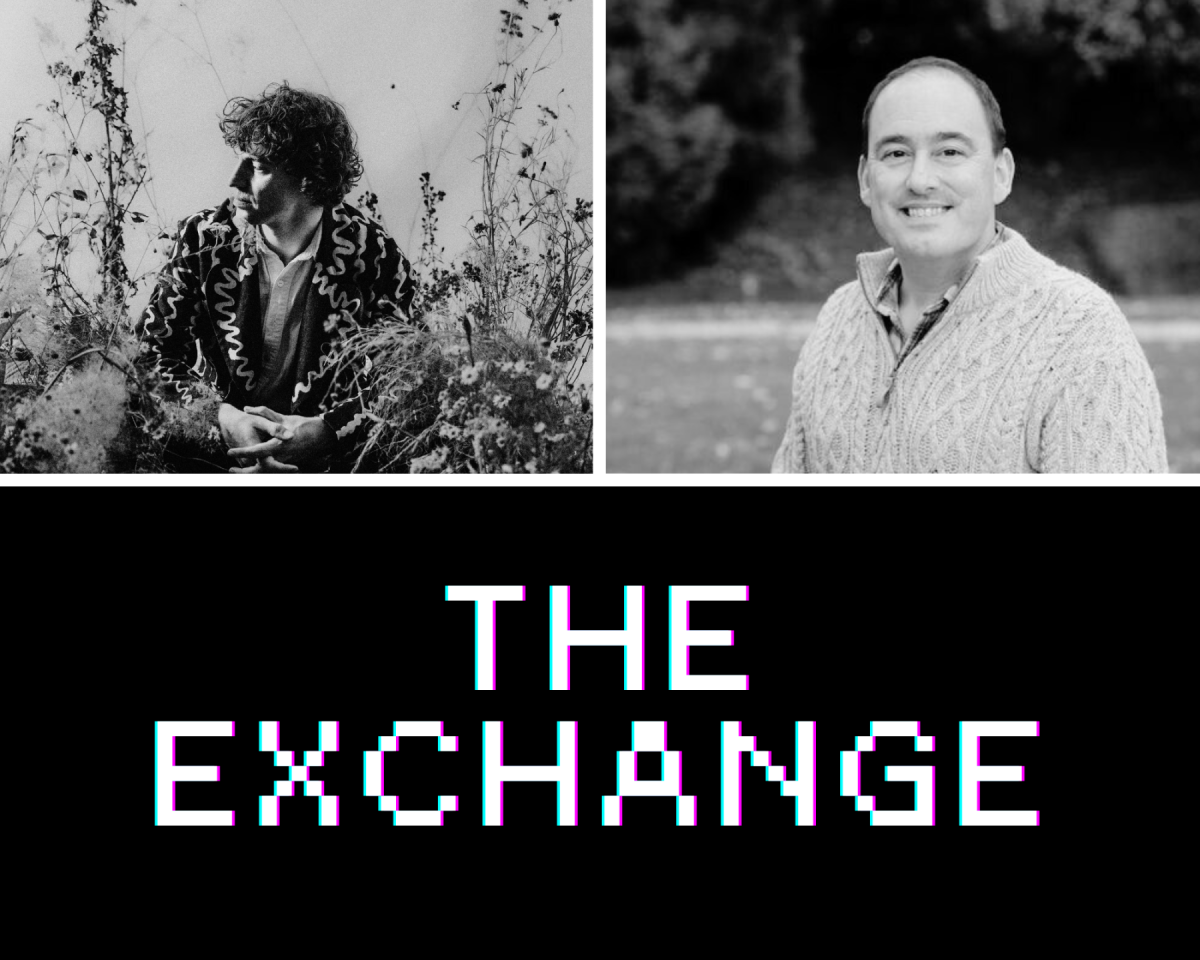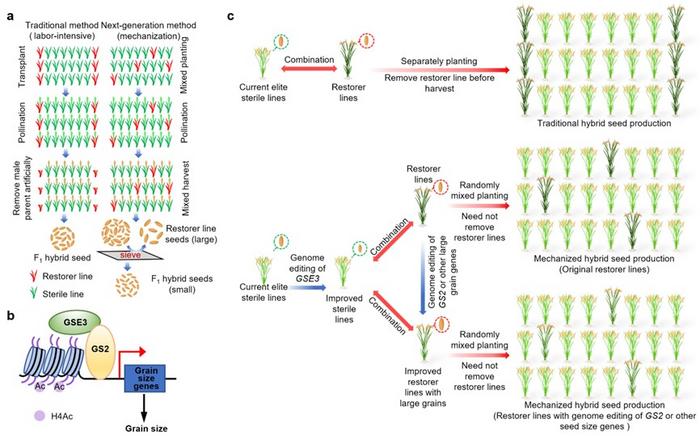The Arts and Sciences used to share much of the same intellectual space. Only recently have they diverged to the degree that they seem diametrically opposed. The Exchange is our attempt to rekindle some of the dialogue that occurred between the two fields.
In this installment, we’ve brought together recording artist Cosmo Sheldrake and University of Oxford Professor Tim Coulson.
Cosmo Sheldrake, a London-born multi-instrumentalist, producer, and composer, has released his highly anticipated album Eye to the Ear. Featuring twenty-one tracks, the album ranges from anthems to soulful elegies and dance numbers, all rooted in themes of interconnection and symbiosis. Cosmo’s music career, beginning with piano at age four, includes viral successes like “Birthday Suit” on TikTok and “Come Along” in an Apple commercial.
Eye to the Ear, a follow-up to his 2018 album The Much Much How How and I, showcases Cosmo’s maturity. The album blends soulful ballads, riotous numbers, and haunting polyphonic songs with field recordings of curlews, whales, and frogs. Cosmo’s collaborations with ecologists and sound recordists have deeply influenced his work, incorporating elements from his expeditions with researchers like his brother, Merlin Sheldrake.
Cosmo’s innovative approach to music includes sharing royalties with conservation organizations, reflecting his commitment to environmental causes. Tracks like “But Once a Child” and “Lichens” support wildlife conservation efforts. Eye to the Ear, acclaimed by American Songwriter and CLASH, exemplifies Cosmo Sheldrake’s unique blend of music and environmental advocacy, inviting listeners to explore the sounds of the natural world.
Professor Tim Coulson is a distinguished biologist at the University of Oxford, where he serves as the Professor of Zoology and joint head of the Department of Biology. His research primarily focuses on understanding how changes in predator populations affect ecosystems and the evolutionary biology of animals. By developing and testing ecological theories with field data, Professor Coulson investigates the dynamic interactions between predators and their prey, using a variety of systems including Yellowstone wolves, Trinidadian guppies, and silvereyes.
Professor Coulson’s academic journey includes earning his PhD at Imperial College London, followed by postdoctoral research at the Institute of Zoology in London and the University of Cambridge. He later returned to Imperial College as a senior lecturer before moving to Oxford in 2013.
In addition to his research, he is an active science communicator, with a popular science book titled The Science of Why We Exist: A History of The Universe From the Big Bang To Consciousness (Pegasus Books), set to be published in June 2024. His contributions to science have been recognized through numerous awards, including the Royal Society Wolfson Research Merit Award and the British Ecological Society’s Marsh Award.
For more detailed information about his research and publications, you can visit his profile at the University of Oxford.


COSMO SHELDRAKE: A number of researchers and large interdisciplinary projects – such as Project CETI – are finding exciting evidence that cetacean mammals have language and culture. I’m interested in how this kind of finding can challenge our human exceptionalism. In your view, do these discoveries change our understanding of our own language, culture, and societies?
TIM COULSON: Every species on earth is different, and each is exceptional. All living species have attributes – or phenotypic traits in scientific parlance – that help them flourish in the environments they find themselves. These phenotypic traits are like their superpowers, enabling them to detect, acquire, and utilize the resources they need to survive and breed in the habitats they call home.
Like each species on Earth, humans too are exceptional. We are the only species that have developed societies and civilizations. We are the only species that can write, read, build and learn to play musical instruments, and deliberately develop and use abstract ideas, such as calculus.
Our large brains and dexterous fingers evolved to help our ancestors survive in breed in the habitats in which they lived, and we have been able to use these attributes to build the modern world. Although whales and primates are exceptional, the primacy of humans in the sciences and the arts is not about to be challenged by gibbons or dolphins.
As we learn more about other species of animals, we discover that they are not the dumb beasts we used to think they were. All species are well-adapted to live in their home habitats. If they weren’t, they would have gone extinct.
Some of the attributes are impressive. For example, even primitive animals such as shrimp appear to have a degree of consciousness, and many species of animals, and even some plants, communicate with one another. Some species communicate with sound such as birds chirping alarm calls to one another, others with flashes of colour and texture as seen in some octopus species as they signal intent to one another, with yet others producing smelly pheromones to signal readiness to mate, and in honeybees, even via dance, as a successful forager direct their kin to nearby flowers.
As we learn more about each new species, we discover that the range of superpowers that evolution has endowed upon life on Earth is vast. These insights do not diminish our unique abilities, but instead we should celebrate all life in science, music and other forms of art. Biodiversity is amazing and should be cherished.
We should not be surprised when we learn that other species can communicate, form types of society, and have forms of culture. Evolution has a way of repeatedly finding similar solutions to the same problem in different species.
Language, society, and culture are things that have helped humans to become successful, so it would be surprising if other species had not evolved attributes to allow them to produce something similar. Ant society helps ants thrive, sperm whale dialects reveal communication is key for their survival but that their form of language has diverged in different populations across their range, and different populations of chimpanzees have formed different cultures in part due to differences in the habitats they inhabit.
Let these differences inspire, and let’s not see them as a threat to our exceptionalism.

TIM COULSON: I am interested in how you write music. When I write scientific narratives, I end up discarding more prose than I keep. My hard drive is littered with the skeletons of papers I abandoned, and the openings books I decided wouldn’t work.
What is the creative process when you write music? Do melodies appear to you nearly fully formed? Or do you just have a rough idea of the type of song you wish to write? Do you write the lyrics or music first? And do you ever completely give up on a piece because you just can’t get it right? Do you think you are typical, or are unusual in the way you compose?
COSMO SHELDRAKE: I mean, absolutely. I constantly start things, and for me, finishing things is one of the hardest tasks. I find starting incredibly easy. But even if I don’t finish something, I often come back and cannibalize it. I have this image of a whale sinking to the bottom of the sea floor and being fed on. In fact, one or two unfinished songs have spawned multiple new songs. I often feel this sense of disconnection is sacrificial. I create something that may never see the light of day itself, but it gives rise to all sorts of things.
What is the creative process when you write music? Do melodies appear in free form, or do you have a rough idea of the type of song you wish to create? Do you write the lyrics or music first, or complete the piece together?
It depends every time. A lot of the time, it starts with improvising in some way. I’ll be messing around, exploring, playing, and jamming, and sometimes something will stick. Other times, I’ll be chopping up sounds at random, like taking field recordings, chopping them up, playing them back, and then recording and chopping them up again. It’s a bit abstract, but I like to find rhythms in unexpected places. For example, if I have a recording of a pebble bouncing off driftwood, I find the bounce and rhythm that naturally occurs. By looping it, you can often discover a new rhythm.
It’s rare, but sometimes I start with a concept for a song lyric. It really depends. Sometimes it’s a feeling, a sensibility, or an abstract idea like making a piece where every snare drum is the sound of a pin dropping in silence, but each pin and silence is different.
Do I ever give up? Yes, definitely. Sometimes I abandon things and delete them. Whenever I improvise with a loop, I don’t save everything. Every gig, everything I ever improvise live, I delete afterward. It’s like an offering to the wind. Do I think I’m typical or unusual in the way I compose? I don’t know. I spend a lot of time working on my own. I’ve worked with many people over the years, but I think everyone has their own triggers and inspirations.
I definitely know that I’ve spent a long time thinking in unconventional ways, and it’s brought me to where I am now. I’m ready to start more collaborations.
Sign up for the Daily Dose Newsletter and get the morning’s best science news from around the web delivered straight to your inbox? It’s easy like Sunday morning.


.jpg)


Leave a Reply